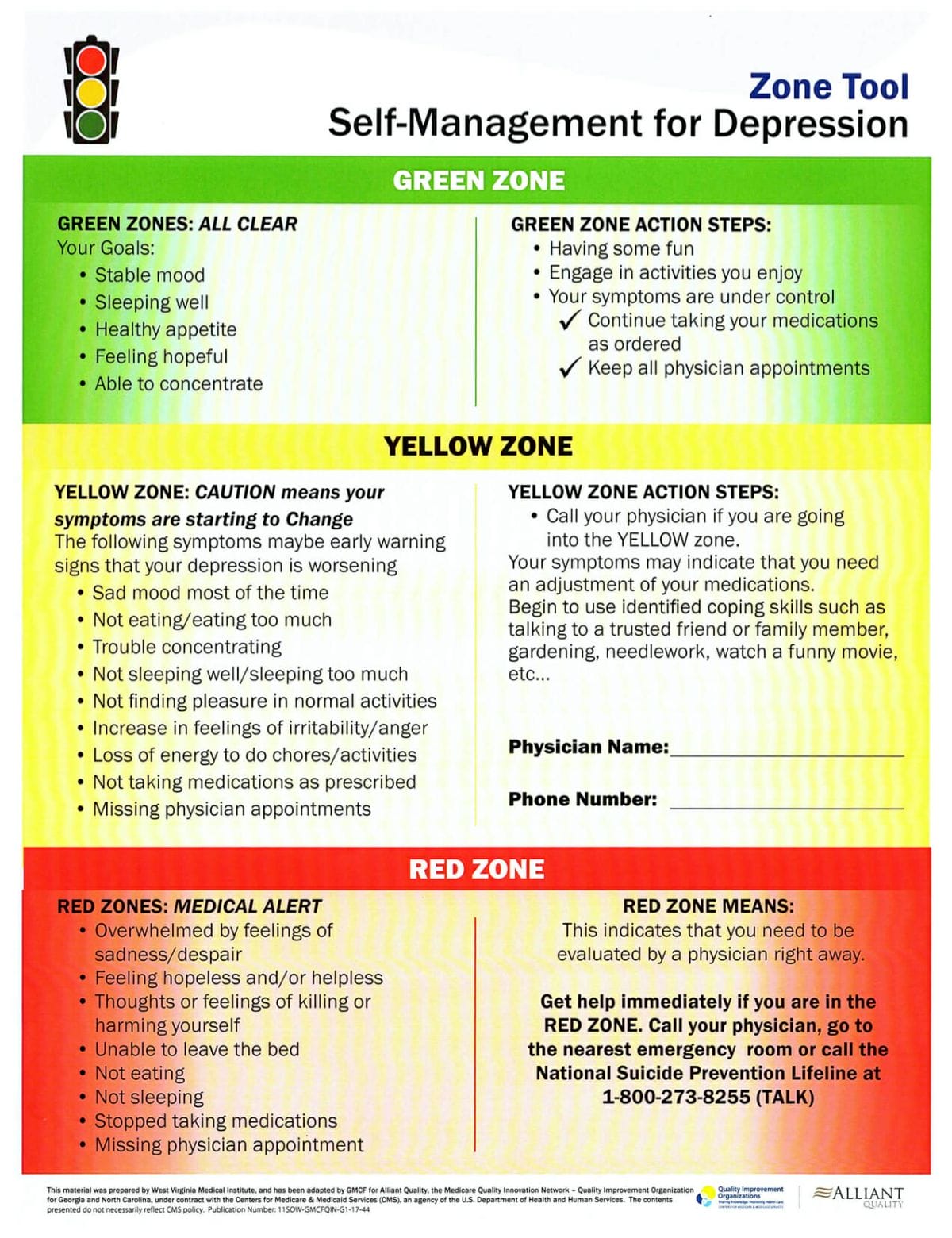This is a guest post with resources from our partners Mindful Transitions, LLC and Alliant Quality.
Recognizing signs of depression in older loved ones can be difficulty. Our partners put together these resources to help assess if you or an elder loved one may be experiencing depression, plus tips for next steps.
Seniors Experiencing Depression: What you need to know to help
Prepared by Laura C. Jalbert, LCSW, CMHIMP, Certified Mental Health Integrative Medicine Provider, Owner and Clinical Director of Mindful Transitions, LLC
- Depression is underreported and under treated-especially in the 65+ age group.
- Depression can slow recovery from or worsen prognosis for other medical problems. We know seniors have an increasing variety of medical issues as they age so this can really complicate the recovery process.
- Most importantly, the symptoms of depression can cause a decrease in functioning and limit someone’s ability to age in place.
It’s also important to note that depression IS NOT a normal part of aging. Not everyone gets depressed. Sadness, grief, losses and temporary “blue” moods are normal but persistent depression that interferes with the ability to function is not.
Sometimes health professionals are even guilty of this belief that persistent depression is an acceptable response to other serious illnesses and general losses that follow aging but this is the very thinking that contributes to low rates of diagnosis and treatment.
The Warning Signs of Depression in Seniors
How do you know if what you’re seeing is depression? The senior may report:
- Depressed mood
- Loss of interest in all or almost all activities of pleasure (time with grandchildren, outings with family or friends, favorite hobbies, etc.)
- Appetite or weight change
- Too much or too little sleep
- Loss of energy or fatigue
- Feelings of worthlessness, excessive guilt or hopelessness.
You might hear the person make statements of a negative/hopeless nature such as, “There’s no point in even being here if I can’t do this or that.” You might also see problems with decision making, thinking or concentration-being slowed. In addition, them may seek/need a great deal of reassurance to do these tasks. The senior may also be preoccupied with death or suicidal thoughts, as well as physical health symptoms or limitations.
How to Notice and Prevent Depression in Seniors
During the upcoming holiday season, please observe your loved ones and ask them how they’re feeling emotionally-especially if you think you see any of the above signs or symptoms. If you know or work with a senior you think may be depressed, please know that there is help! Most depression can improve with a combination of medication and psychotherapy.
At Mindful Transitions, LLC, we’ll be glad to assess the senior and provide individualized recommendations for further evaluation and treatment. Feel free to contact us!
Downloadable PDF
Created by Alliant Quality, the following handout may be useful in assessing an older loved one’s moods. Feel free to download this resource to keep track of any alarming symptoms or mood changes.
Click here to download the Depression in Seniors Handout


